Hidden Village of Progress: Ivankovo - Great Example of Slavonia Full of Life
January 25, 2022 - There are many obstacles the Slavonia region faced in the last two decades, but one of the most prominent ones is the emigration of young people who do not see a future for them here. However, one particular village in the eastern interfluve of the Drava and Sava rivers in Vukovar-Srijem County stood out from the rest. Meet Ivankovo.
Ivankovo is located in Vukovar-Srijem County, west of the historical city of Vinkovci, along a busy road that has passed through that area since prehistoric times. The design reminds of a typical traditional Slavonian village; the houses are located on long narrow plots, built on a regulation line, and the background is used for agricultural purposes. In addition, there are villages Prkovci and Retkovci, which are also part of the Ivankovo Municipality. Furthermore, its geographical and traffic location connects cities like Đakovo, Osijek, Vinkovci, Vukovar. Also, the motorway A3 Bregana - Lipovac, industrial track, airport Klisa, the port of Vukovar, and neighbouring municipalities Vođinci, Stari Mikanovci, Andrijaševci, Cerna, and Jarmina. Historically, the municipality of Ivankovo was always highly populated (unusual for villages in Eastern Croatia) with, according to the 2011 census, 6,194 residents in Ivankovo, 1,263 residents in village Retkovci and 549 residents in Prkovci. However, the 2021 census showed that the emigration of people, especially young people, did not bypass Ivankovo. Only Vukovar-Srijem County has 19 percent fewer people than ten years prior, with just Ivankovo losing 1,091 residents. These devastating numbers only show how much this part of the country suffered since the Homeland War, and the possible potential Eastern Croatia can offer was neglected for decades. Recently, however, things started to change.
Croatia joined the European Union on the 1st of July 2013 and opened its borders to new opportunities, which was partly a curse if we consider the emigration, but Euro funds all of a sudden became available and small communities and districts like Ivankovo saw the opportunity to use its resources to develop their infrastructure. After the change of the government in 2017, hard work needed to begin. One of the first obstacles elected officials had to face were decrepit institution buildings (school, kindergarten, fire station), sacral objects, financial transactions pointlessly directed at projects that did not make any sense, engaging locals in public events, and keeping young residents and their potential families in the district of Ivankovo. This was only a drop in the ocean, but with the available European funds and fixes in municipalities' budgets, projects of developing neglected villages finally started.
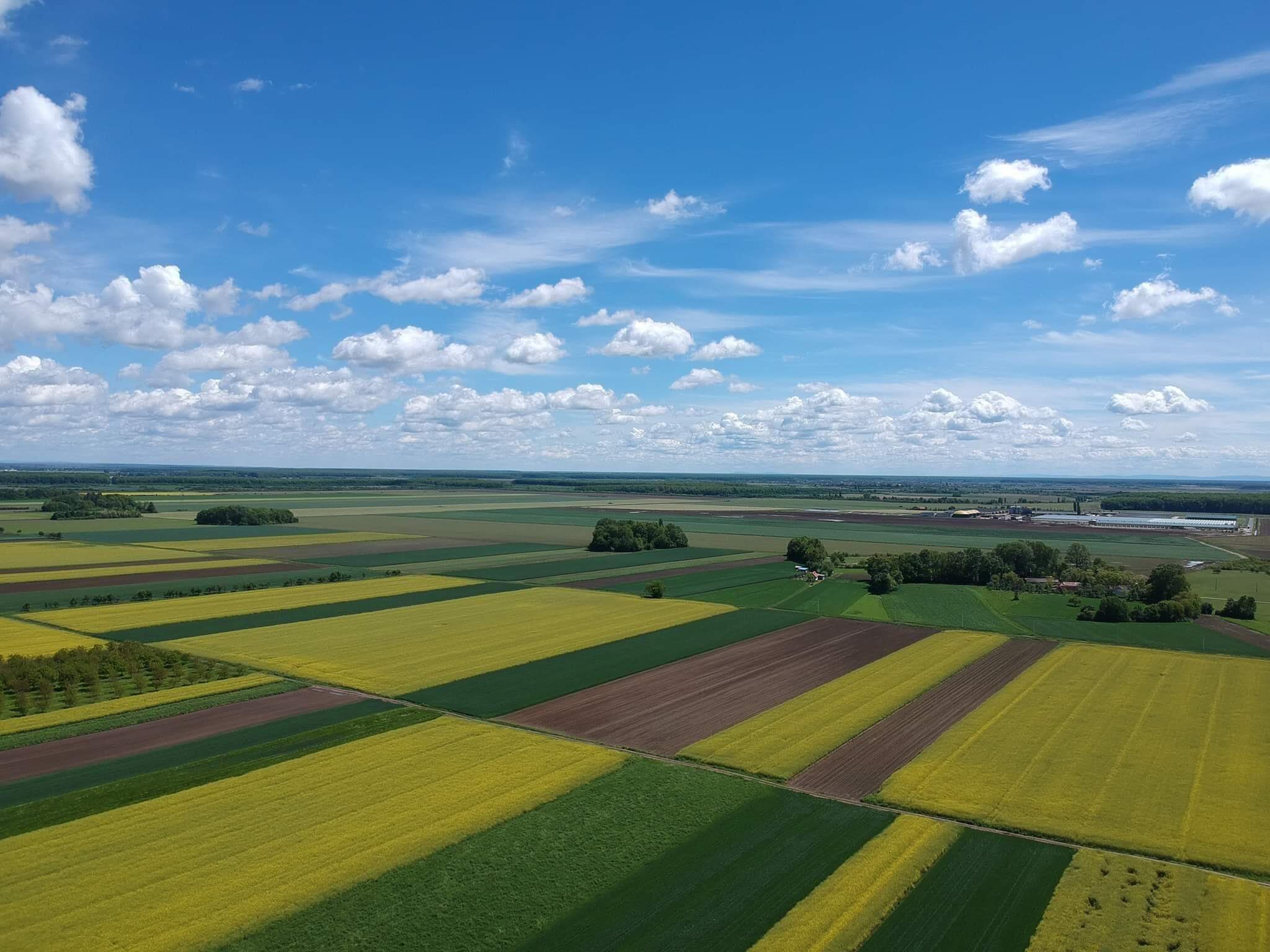
foto: Facebook/Ivankovo.info
The first big project happened at the Industrial Zone Ivankovo, which was, after many years, finally put into function and allowed local entrepreneurs to invest and develop their own establishments. This encouraged employment, of which 70 percent needed to be from the Municipality of Ivankovo.
Local utilities also needed a massive upgrade, so a communal society was formed and today employs 26 people from the Municipality, who take care of the village’s environment every day. Public spaces like children’s playgrounds, parks, and other areas were built and renovated. Furthermore, part of the Revitalization plan included planting 300 trees across the Municipality. The roads have been renovated, built where needed, and the sewer system finally connected with households across the villages of Ivankovo, Prkovci, and Retkovci. Waste management is still a huge problem across Croatia but the local government of Ivankovo, with the help of EU funds, enabled the construction of a recycling yard which highlights the need for sorting and recycling the waste. 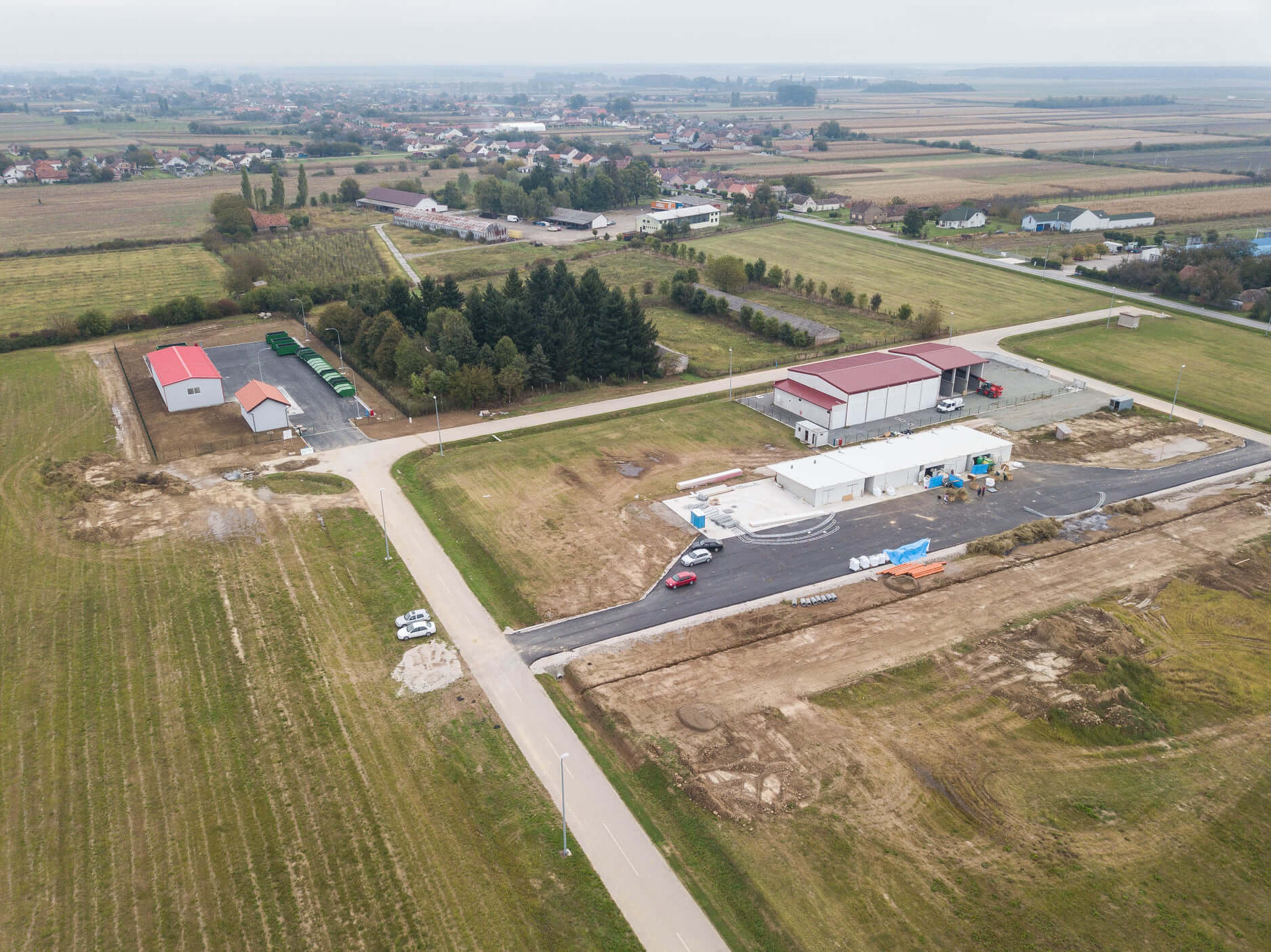
Industrial Zone Ivankovo, foto: Facebook/Marko Miličević - načelnik Općine Ivankovo
Social incentives: co-financing the purchase of houses for young families, infant benefits, free preschool educations, new kindergarten buildings, free student transportation, student scholarships, and other perks of the demographic policy all came into fruition since 2017, and it helped residents of Ivankovo immensely.
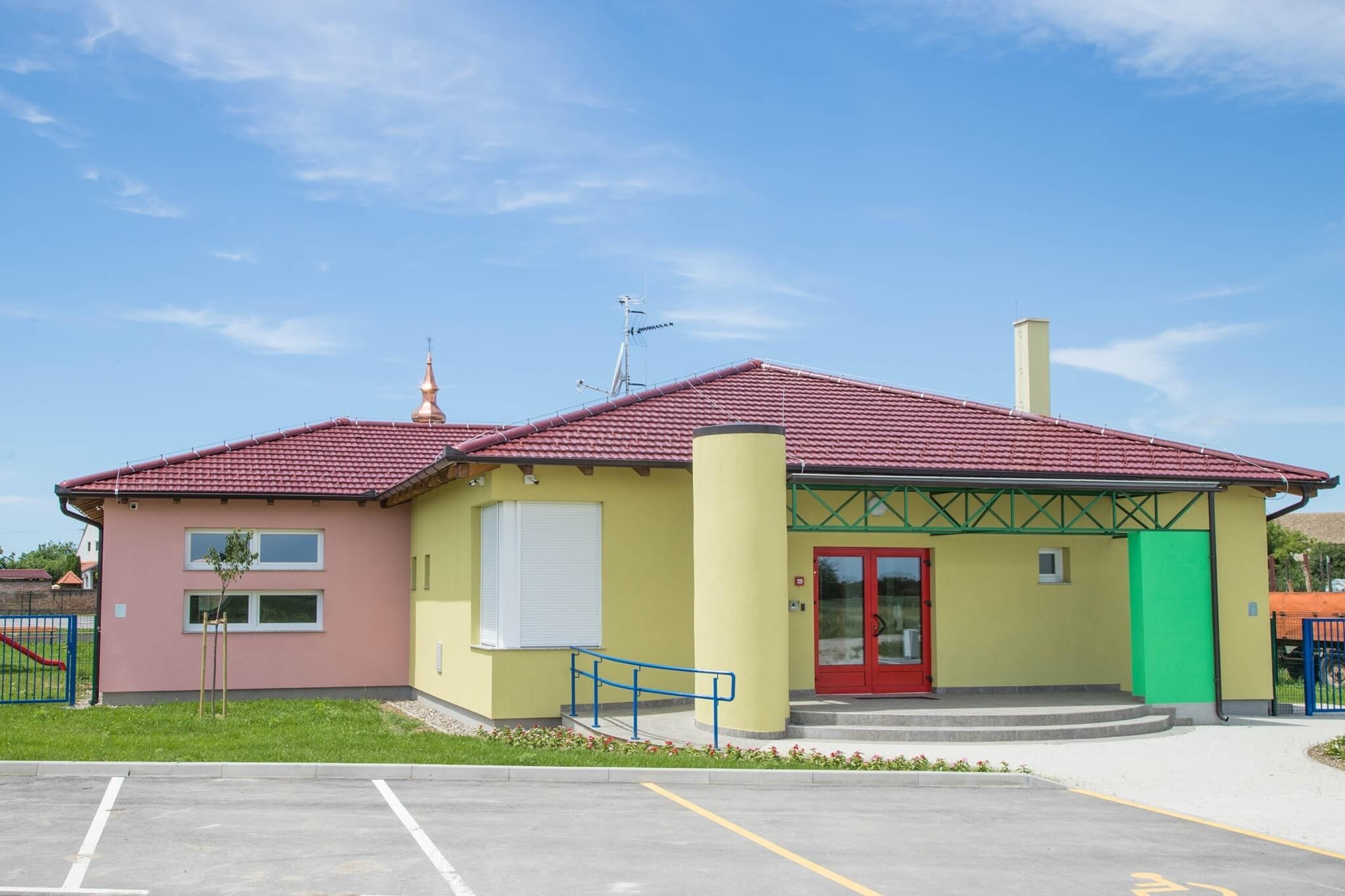
Newly Built Kindergarten Ivankovo, foto: Facebook/Dječji vrtić Ivankovo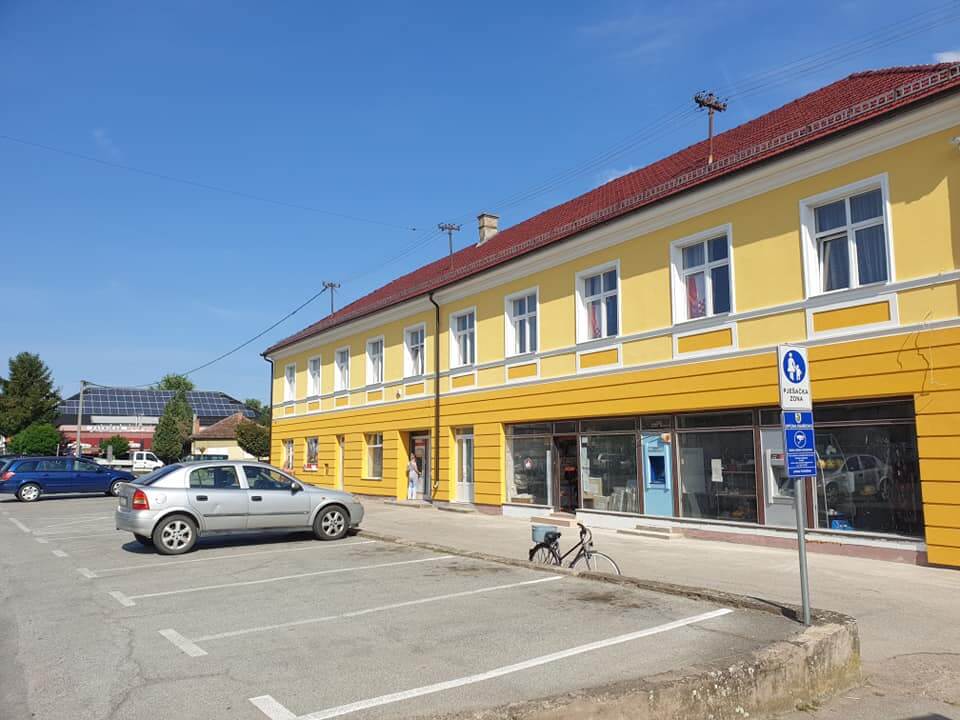
Renovated old government building, foto: Facebook/Marko Miličević - načelnik Općine Ivankovo
This is only a drop in the ocean that shows if people put in a little effort and genuinely care about the development of the community in which they reside, Slavonia can truly be better. When asked about these achievements and progress the Municipality went through the last few years, Mayor Marko Miličević says that “this is only the beginning. It was hard, we had to fix a lot of issues that were rooted here for years, but with the help of my colleagues and finding resources to finance our goals of development of this region, we started something that we can only continue to build on.”
He continues: “The most important part was listening to people, getting to know them again and recognizing their needs because before they weren’t being listened to.”
Plans seem ambitious as well: “This Municipality has so much potential and highly educated people, with more than 100 faculty students every year who are studying economics, IT, electrical engineering and computing, food technology, medicine, etc., which are all the fields that are the future of this country.” he says.
Furthermore: “We have numerous development projects in works that we want to be finished in the next few years: further development of Entrepreneurial Zone Ivankovo, a tourist, sports and recreation center, a retirement home, catering and tourist zone, etc.
Mayor Miličević ends on a hopeful note: “We have achieved the future of development in the Municipality of Ivankovo, and we plan to continue it.” 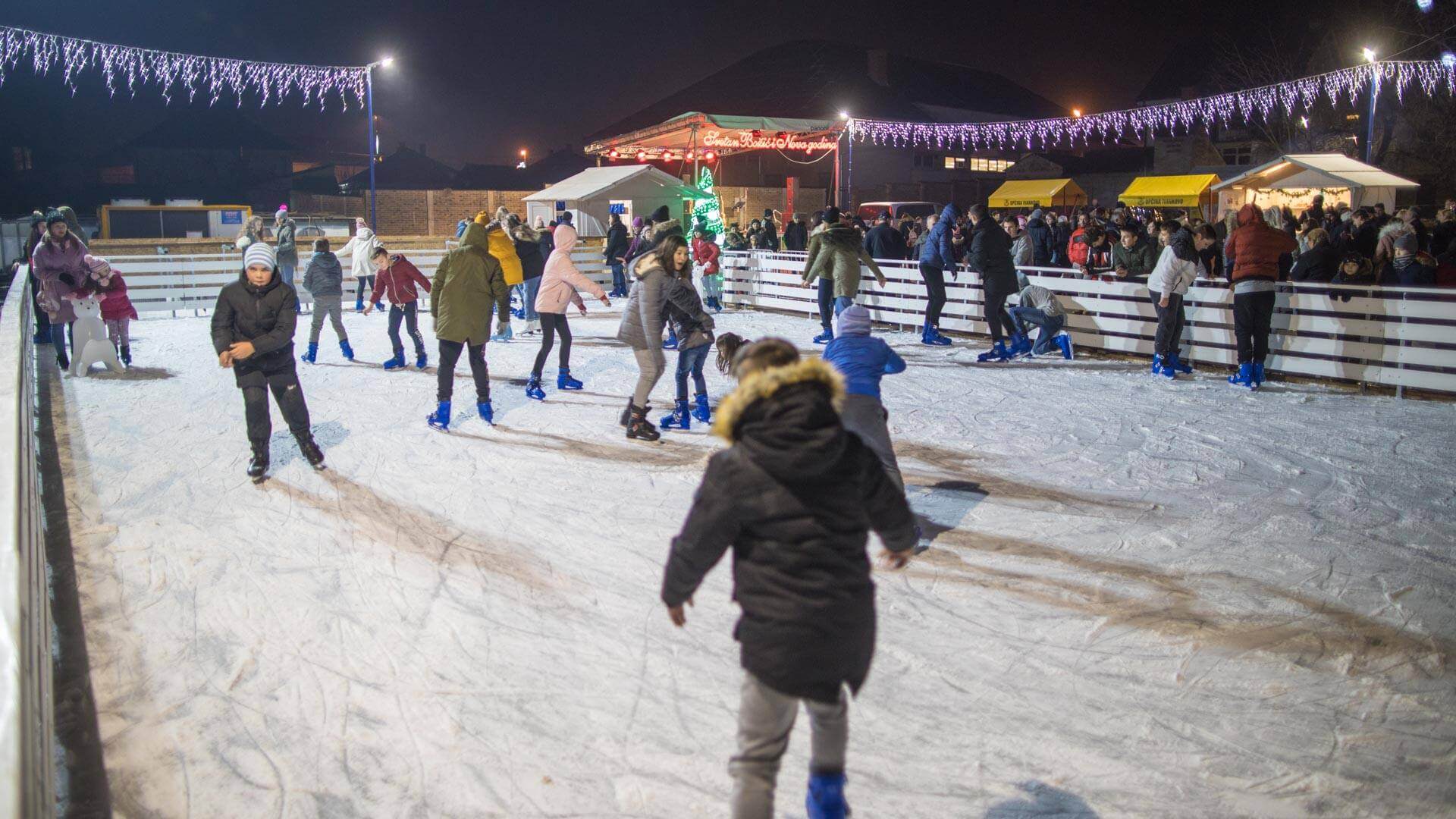
Winter Joys During Christmas Holidays, foto: Facebook/Marko Miličević - načelnik Općine Ivankovo
Sports recreation, social events, concerts, the inclusion of young people in said events, and more only shows that the district of Ivankovo finally livened up and restored a little bit of life that resided here 30 - 40 years ago. Multiple “parasites” wormed themselves in the core of Slavonia and slowly but surely exhausted the region to the limit. People settled for what was enough for them, for what was given to them, and some of them left because they couldn’t see their future here. Generations of high schoolers heard every day that there isn’t a place for them here in Slavonia, that there are many people like them who never found themselves here and had to leave because of it, and that they need to leave as well.
The hope for Slavonians has been stepped on for years, but the current changes slowly every day. Osijek started it, Vukovar and Vinkovci are following it. Still, a village like Ivankovo can only be an example of how much power its residents have and use their potential to make, how one former foreign politician said, Slavonia great again.
For more, check out our dedicatedlifestyle section.
President Talks with Croatian Earthquake Engineering Centre Representatives
ZAGREB, 24 Jan 2022 - President Zoran Milanović on Monday received representatives of the Croatian Earthquake Engineering Centre (HCPI) for talks on the state of buildings damaged in the 2020 earthquakes in Zagreb and the Banovina region.
HCPI was established last October and has become one of the fundamental operative forces within the Civil Protection Directorate, the president's office said in a press release.
HCPI representatives told the president their engagement is envisaged after major natural disasters when a larger number of structures is damaged and rapid response is required from engineers to professionally inspect the structures and provide a rapid evaluation of their usability.
They also talked about the state of buildings and houses damaged in the 2020 earthquakes as well as the importance of quality post-earthquake construction and reconstruction.
After the March 2020 quake in Zagreb, Zagreb Faculty of Civil Engineering professor and HCPI coordinator Josip Atalić brought together structural engineers who visited the damaged buildings and houses, did quick checks and issued stickers denoting their usability.
HCPI engineers inspected 25,580 buildings in the Zagreb area at that time, and another 813 buildings since.
HCPI representatives said they self-organised after the Zagreb earthquake and visited the area because there was no earthquake plan. They did the same after the earthquake in December 2020 in Sisak-Moslavina County, with 1,700 engineers volunteering in the inspections.
Msgr. Roko Glasnović Ordained New Dubrovnik Bishop
ZAGREB, 22 Jan 2022 - Msgr. Roko Glasnović was ordained the new Bishop of the Dubrovnik Diocese on Saturday.
Glasnović was born on 2 July 1978 in Šibenik to father Nikola and mother Marija née Palić. He attended a theological seminary and studied theology in Split from 1999 to 2005. He was ordained a priest in 2005 in Šibenik.
He has performed numerous pastoral duties at the Šibenik Diocese.
Croatia Shopping Malls Against Covid Confirmation
July 4th, 2021 - Croatia shopping malls against digital covid vaccination card and negative test.
Marko Župa, communications manager of the Westgate Shopping City shopping center, told RTL television that the directive according to which it will be possible to enter shopping malls only with a digital covid certificate and a negative covid test is completely illegal.
"Three years ago, the GDPR came into force, it is a European directive, which, for example, in this particular case prevents us from asking our visitors, our employees, employees of our stores their health status. So in this legal part, this completely fails," said Župa.
"As for the techniques themselves, when this legal part would be resolved, and it is not so easy, we should, for example, employ 22 full-time people in our shopping center to scan certificates throughout the day. The first question is who will pay these people themselves because it is a certain amount of at least 120 thousand kuna per month," added the communications manager of Westgate Shopping City.
Župa said that the second question was who should pay for the tests and added that Croatian society would be divided into vaccinated and unvaccinated.
"Those who are not vaccinated will then live in some separate blocks, use shops where there will be only unvaccinated people, and so on," said Župa for RTL television.
The Croatian Institute of Public Health has confirmed that this measure is being considered for shopping centers and other facilities. It remains unknown, however, who should cover the cost.
"I first ask the question of the morality of such a decision in general. Secondly, I ask about the normality of such a decision because, in my opinion, it is completely insane. So it happens that we want to segregate society into vaccinated people and those who are not vaccinated. And again, as with so many other topics, we return to shopping malls. Well, here is an open question, will we look at who is vaccinated and who is not vaccinated at the entrance to the church or some third facilities, sports facilities?" said Župa.
He added that Westgate has fantastic communication with the National Civil Protection Headquarters, but they found out about this idea from the media.
For more on lifestyle, follow TCN's dedicated page.
For all you need to know about coronavirus specific to Croatia, make sure to bookmark our dedicated COVID-19 section and choose your preferred language.
Croatia's First Enogastronomy Study Programme: Students to Learn About Pairing Indigenous Wine and Food
May 25, 2021 - As reported by Večernji list, the Polytechnic of Požega will from the next academic year offer Croatia's first enogastronomy study programme.
The first study programme in the field of biotechnical sciences is focused on the quality and health of food and beverages, primarily in the hospitality and tourism sector.
At the Polytechnic, they point out that the current development of gastronomy in Croatia must not be left to chance and that the need for the education of experts in this area is becoming increasingly important.
There are now three national gastronomy study programmes in Croatia, but this is the only study programme of enogastronomy, which means that the science and study of wine will play a significant role. But, the key difference is that this is the only STEM study programme of its kind.
"Unlike the other two study programmes, which are predominantly economic and in which marketing and communication dominate, 70 percent of our courses revolve around cooking and only 30 percent are marketing and management," explains doc.dr.sc. Berislav Andrlić, Vice Dean for Development of the Polytechnic.
Although the enrollment quota in the first year has been reduced to 30 full-time students who will study at the expense of the Ministry of Science and Education in Požega, due to the specifics of the study, students from all potential tourist areas of Croatia are expected. A smaller number of students is fitting because cooking involves professional practice with a chef, for which work in small groups is ideal, but the program content includes a number of courses related to indigenous dishes from all parts of Croatia, from Dalmatia and Istria to Slavonia.
"We believe that such a study in Požega is needed for two reasons. The first is the resources we have in the environment, and the second is the needs of the labor market. We have conducted a survey among businessmen, hotels owners, restaurants, and family farms on the Adriatic and on the continent, and more than 70 percent said that they needed such food and beverage managers, restaurant and hotel managers, i.e. people who will know how to create menus and do guest management, and at the same time know how to produce food. So, it offers a combination of both occupations, both sales, and food production, which is not the case with other programmes that are mostly based only on sales," Andrlić points out.
Upon completion of this programme, students will acquire a Bachelor's in engineer food technology, majoring in enogastronomy, which is an innovation compared to other similar faculties where they were bachelors of economics. Potential employers will be all economic entities that are primarily engaged in tourism, i.e. food production on the one hand and tourist catering on the other. With students who complete the study of enogastronomy in Požega, they will get both of these functions in one person.
For more on made in Croatia, follow TCN's dedicated page.
Remains of Five Victims Who Went Missing in War Identified in Osijek
ZAGREB, 21 May 2021 - Five people, whose remains were unearthed in Croatia's Danube region after they had gone missing in the 1991-1995 Homeland War, were identified in an Osijek hospital's forensic department on Friday.
Prime Minister Andrej Plenković, accompanied by War Veterans' Affairs Minister Tomo Medved, attended the final identification and after that he told the press the government was committed to shedding light on the fate of all the war victims.
Plenković said that the issue of missing victims was raised on every occasion and at every formal and informal meeting with Serbia's representatives.
Minister Medved said that Serbia still made no contribution to efforts to find the victims who went missing in the war.
After today' identification, the number on the list of missing people has fallen to 1,864. Of them, 401 are presumed to be dead and the fate of the remaining 1,463 victims is still unknown.
For more news in Croatia, follow TCN's dedicated page.
Goran Vrabec Best Young Farmer in Croatia
ZAGREB, 21 May 2021 - Goran Vrabec has been named Croatia's best young farmer in 2021, a farmer who owns a family farm in the northwestern region of Zagorje growing chili peppers, and he was presented with the prize by Parliament Speaker Gordan Jandroković on Friday.
Vrabec was chosen from among 21 finalists and along with the first prize, he also won a reward of HRK 25,000, donated by Zagrebačka Banka.
Brankica Borović, whose family-run farm business produces natural, dermatologically tested cosmetics based on immortelle and almond oil, won second prize and HRK 15,000, while wine maker Ivan Gerštajmer Zelember won third prize and HRK 10,000.
The competition for the best Croatian young farmer was organised by Croatian member of the European Parliament Sunčana Glavak, the Agriculture Ministry and the Jutarnji List daily.
The finalists will travel to Brussels for a ceremony at which the best EU farmer will be awarded.
Zagrebačka Banka has secured financial education for the young farmers and will assist them in filling out forms for EU funds, while the Konzum retail chain, which is a sponsor of the competition, will sell their products.
Glavak said that the record high number of applicants showed that young people were very interested in staying in Croatia and its rural areas.
She said that it was encouraging that Croatia would have a record-funds amount of funds from the EU at its disposal, which it will be able to use to improve farm production.
Agriculture Minister Marija Vučković said that Croatia was slightly above the EU average in terms of the number of young farmers, who number 23,228, which is 13.6% of the total number of farmers.
"That is not enough, but the trend is positive and has been rising and we want the share of young farmers to reach 20% with the share of farmers aged above 55 simultaneously going down," she said.
The minister said she was glad that young farmers were increasingly using measures from the Rural Development Programme because it brought structural transformation to rural areas. She noted that agriculture, fisheries and aquaculture could be the real engines of development of Croatia's economy.
Parliament Speaker Jandroković said that he was glad Croatia was above the EU average in terms of the number of young farmers and that he saw hope for development of villages and rural areas in that.
Ample EU funding has evidently helped young people recognise opportunities and realise that country life is often better than life in a city, and that it is possible to make a living from farming, he said.
For more on made in Croatia, follow TCN's dedicated page.
Next Week, Croatia Will Consider Possible Relaxation of COVID Rules as of 1 June
ZAGREB, 21 May 2021 - The head of the Croatian COVID-19 crisis management team, Interior Minister Davor Božinović, said on Friday that the authorities would next week start considering possible relaxation of anti-epidemic rules as of 1 June.
The current rules are in force until 31 May and we will see which course to take considering the relaxation, the minister said.
Božinović added that Croatia wanted the application of the EU Digital COVID certificate to start as soon as possible.
Being a tourist destination, Croatia would like to see the implementation of the COVID travel pass as soon as possible.
Apart from serving as a travel pass, the digital COVID certificate can be used for some other purposes, and this depends on decisions to be made by individual member-states, Božinović said.
He went on to say that the technological system was equal at the EU level, and it would be known who was authorised to develop the QR codes for certificates, he explained.
During a news conference in Zagreb today, the head of the Croatian Institute of Public Health (HZJZ) Krunoslav Capak, informed that all the participants in two pilot projects -- a business lunch and a wedding party -- tested negative to coronavirus seven days after the participation in those events.
Overall in Croatia, the number of new positive cases fell by 38% over the week, he added.
Croatia's current incidence rate per 100, 000 inhabitants is 262.5.
As for the vaccination of foreigners, Capak said that Croatia enabled foreign citizens to get vaccinated.
For instance we have vaccinated 500 diplomats and their families' members, they have no Croatian documents, and information about their inoculation has been entered into the relevant data base, Capak said.
For all you need to know about coronavirus specific to Croatia, including travel, border, and quarantine rules, as well as the locations of vaccination points and testing centers up and down the country, make sure to bookmark our dedicated COVID-19 section and choose your preferred language.
Local Elections Main Topic in Croatian Parliament
ZAGREB, 19 May, 2021 - Sunday's local elections were the main topic of speeches in the Croatian parliament on Wednesday morning.
Dalija Orešković, speaking on behalf of the Civic Liberal Alliance (GLAS) and Centre group, said that the results of the vote showed that citizens were becoming aware that government could be changed. She urged the opposition in parliament to begin dialogue on the reform of the electoral legislation and administrative structure of Croatia.
"We have three years ahead of us to reform electoral legislation and electoral units to make them constitutional and fair, to ensure that each vote counts equally, and to reduce the number of counties, towns and municipalities," Orešković said.
She congratulated "all new progressive forces that made it into the second round of elections, thus threatening the survival of the petrified and corrupt structures of the existing government."
Andreja Marić of the Social Democratic Party (SDP) warned of double standards used by the national coronavirus response team, which allowed the opening of the borders on election day despite the epidemiological criteria in place.
"What kind of message does that send to the public? How can we expect people to comply with the measures if such decisions that mock us all are made?" Marić asked.
She recalled that medical professionals had warned that they expected a rise in the number of new infections in the next three weeks as a result of this decision. "The ruling parties heed only messages that suit them politically," Marić said.
Silvano Hrelja of the Croatian Peasant Party (HSS) and Croatian Pensioners' Party (HSU) group drew attention to the low turnout. "Those most dissatisfied again stayed at home," he said.
For more news about politics in Croatia, follow TCN's dedicated page.
For more news about Croatia, CLICK HERE.
Financial Stability Council Meets to Discuss Risks to Stability of Financial System
ZAGREB, 19 May, 2021 - Timely and full reporting on the impact of the coronavirus pandemic on business operations and the materialisation of credit risk in financial institutions is important as some sectors of the Croatian economy are still strongly affected by physical distancing measures, the Financial Stability Council said.
The Financial Stability Council is an inter-institutional body that designs Croatia's macroprudential policy. It consists of representatives of the Croatian National Bank (HNB), the Croatian Financial Services Supervisory Agency (HANFA), the Ministry of Finance and the State Agency for Deposit Insurance (DAB).
The Council met on Tuesday under the chairmanship of HNB Governor Boris Vujčić to discuss main risks to the stability of the financial system. The meeting also involved Finance Minister Zdravko Marić, HANFA Board President Ante Žigman and DAB Director Marija Hrebac.
Despite the accelerated recovery of economic activity from the consequences of the pandemic, in the circumstances of continued uncertainty regarding a return to usual social contacts and business, the financial system's exposure to systemic risks remains elevated, the Council said in a statement, citing high public debt, the financial sector's exposure to the government, a possible rise in the number of insolvent companies and fast growing housing prices as main risks.
It noted that housing prices had risen by 7.7% in 2020 year on year and surpassed their level in the period preceding the global financial crisis, adding that housing loans were picking up.
Given that some sectors of the economy are still strongly affected by physical distancing measures, the Council said that a premature cancellation of aid could put healthy businesses at risk and increase the credit risk, while extended maintenance of support could keep companies with unsustainable business models on the market and zombify the corporate sector, which would have adverse implications for growth and financial stability, the statement warned.
The Council said the banking sector was highly capitalised and liquid. The volume of loans covered by the loan repayment moratorium continued to fall after peaking in September 2020 and at the end of March 2021 it covered 8.6% of corporate and household loans. The loans covered by the moratorium were mostly aimed at hotels and restaurants.
The Council said that the recovery of the financial markets, which began at the end of last year, had continued in the first half of this year and that nearly all sectors supervised by HANFA were seeing growth.
The positive mood has also affected the financial services sector, whose assets at the end of March 2021 were 3.5% higher than at the end of 2020, accounting for 32.15% of the total assets of the financial system in Croatia, or 61.7% of the nominal GDP, the statement said.
For more news about business in Crotia, follow TCN's dedicated page.
For more news about Croatia, CLICK HERE.


